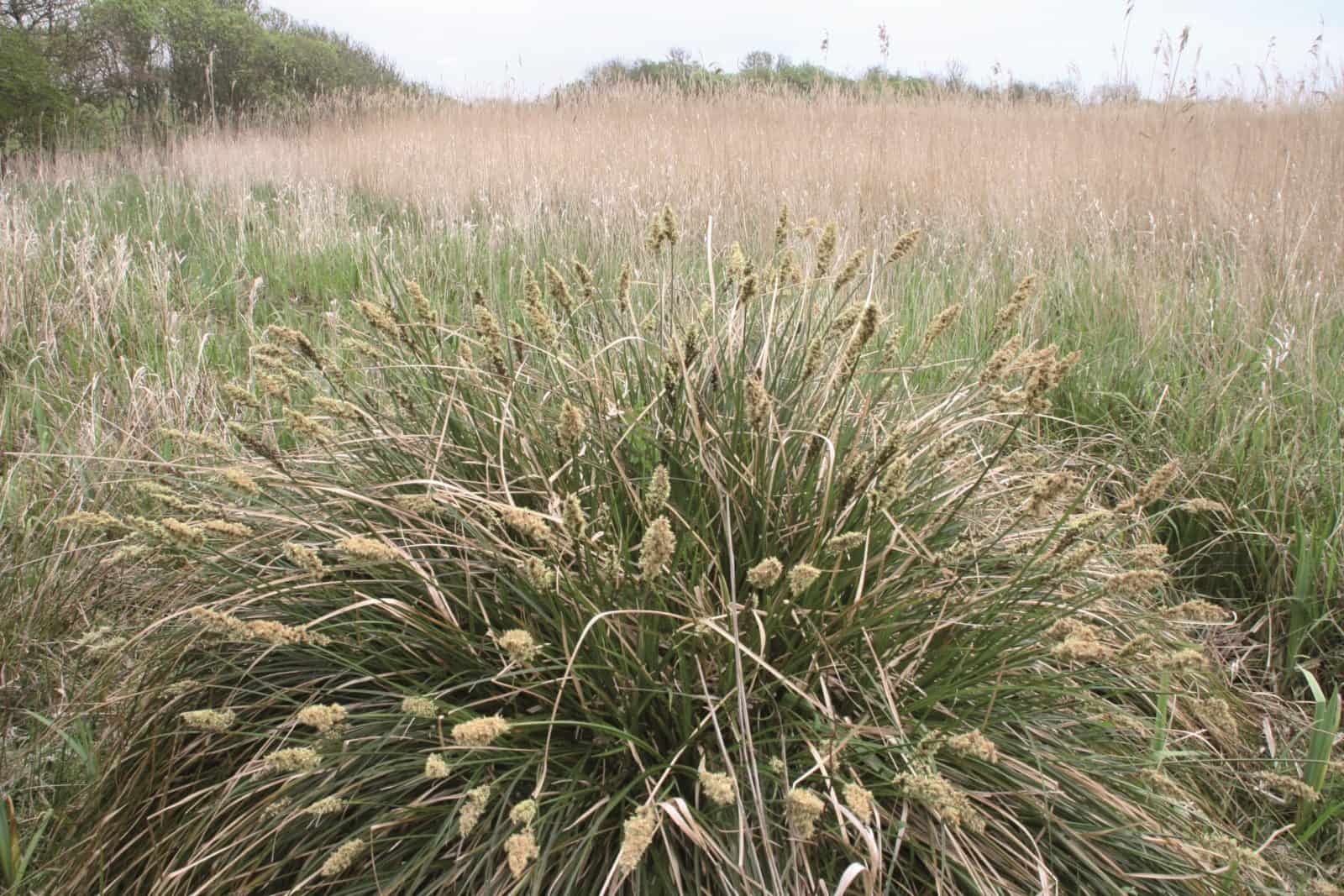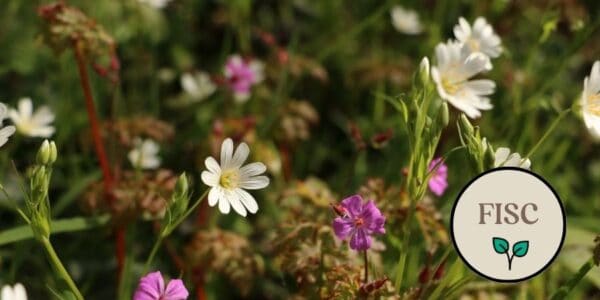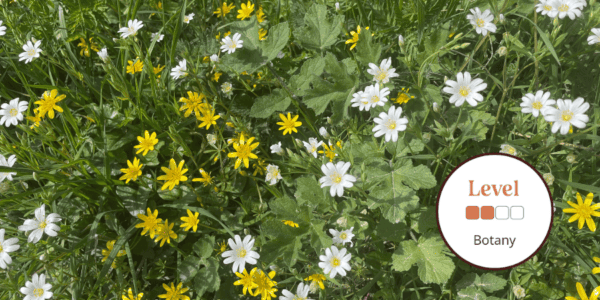This Grasses, Sedges and Rushes course will provide you with an understanding of the importance of these species for conservation, ecology and recording.
The countryside around the Preston Montford Centre offers a great range of habitats to explore from roadsides and improved grassland to moorland, water margins, fen, calcareous grassland and woodland.
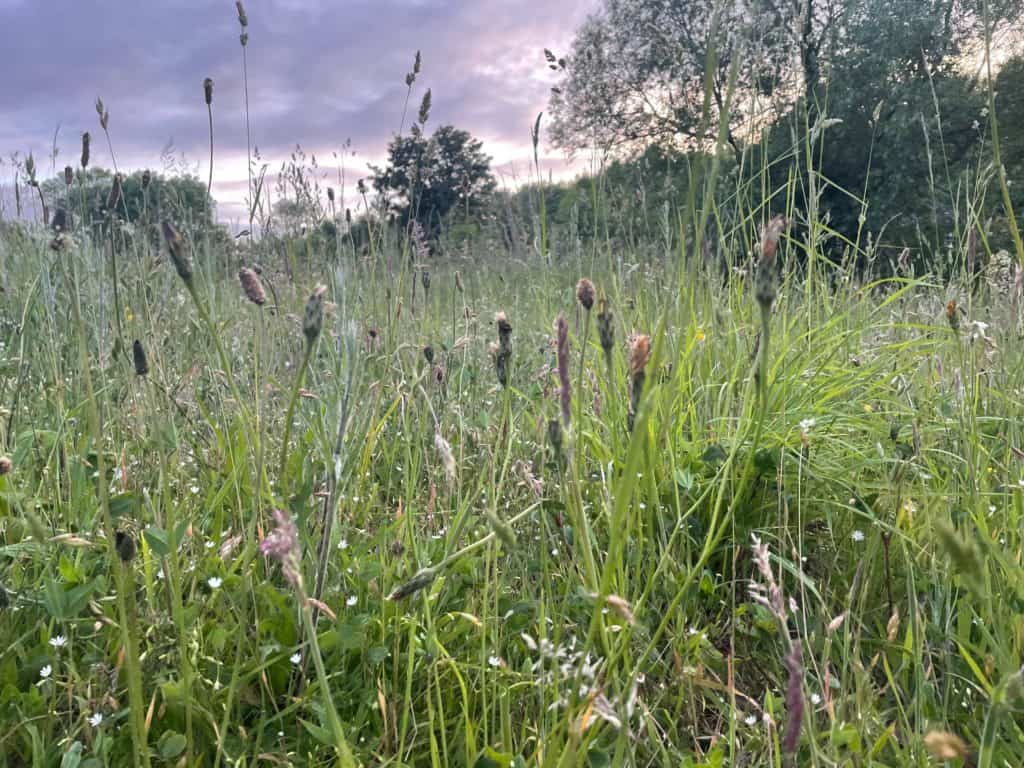
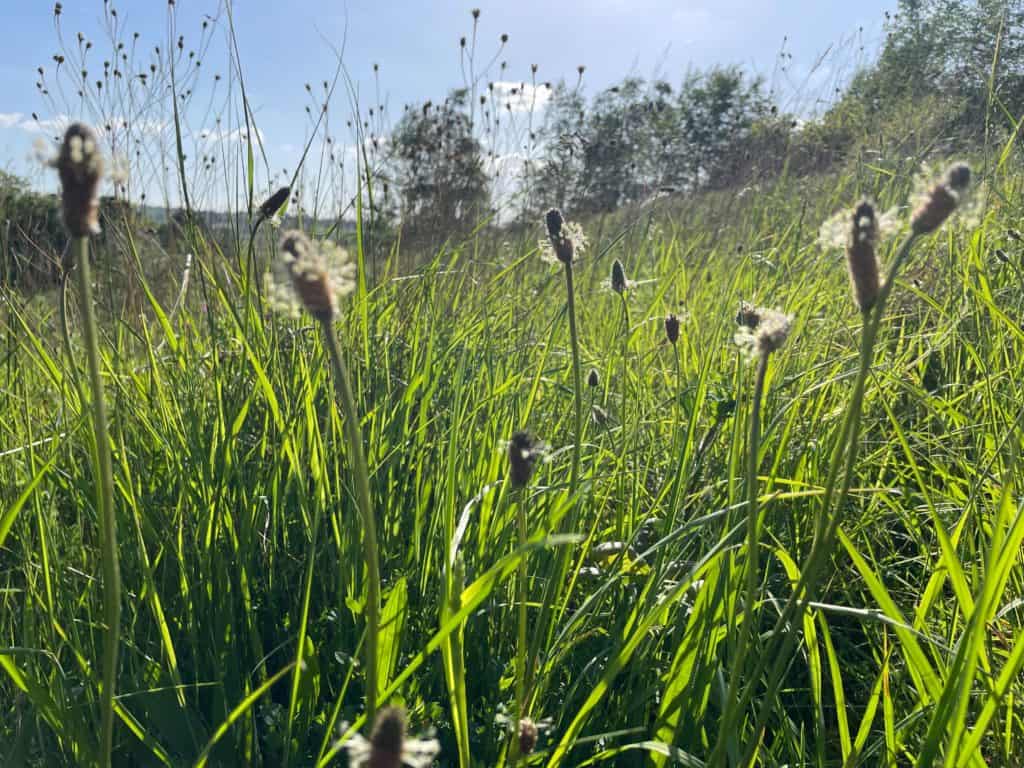
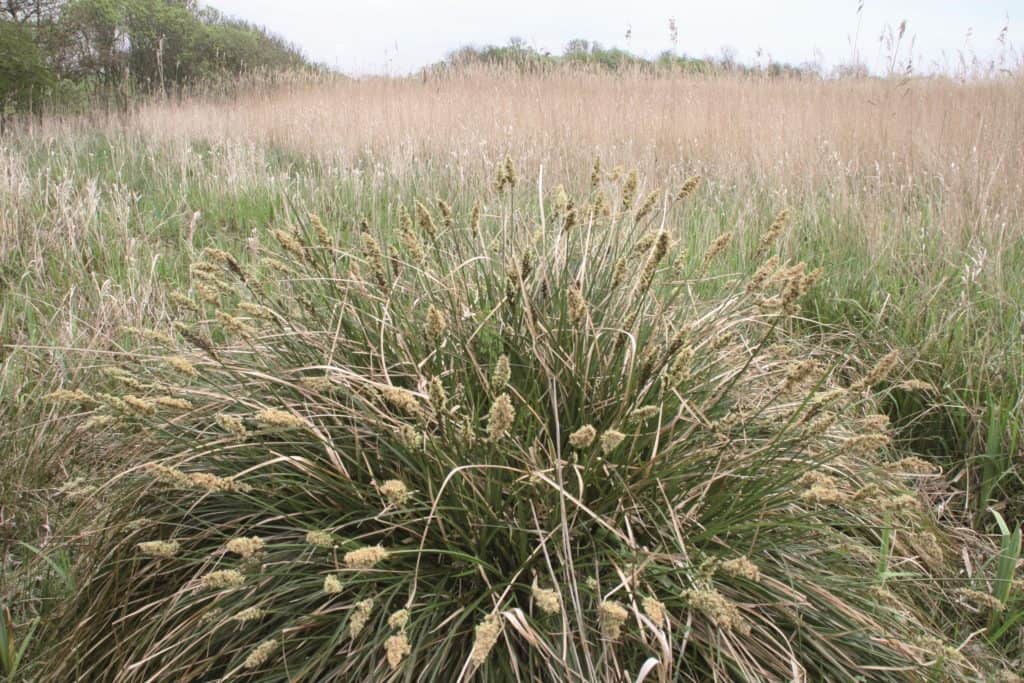
Read More
You will make the most of this by embarking on field visits to a range of contrasting sites, providing plenty of material from all three families, some of which will be examined in detail in the lab. Identification keys will be introduced and you will be encouraged to take the exciting step of making your own voucher specimens for reference.
Grasses and grass-like plants form a key component of most plant communities yet are notoriously difficult to identify. Accurate identification is essential for successful site surveys and management and a botanist’s skill is often judged by their ability to ‘do’ grasses, sedges and rushes. This course will cover the formal taxonomic differences between the three families Poaceae, Cyperaceae and Juncaceae, and enable you to identify the most common members of each.
Classroom sessions will take place prior to excursions, enabling you to become familiar with the diagnostic features and terminology peculiar to these plants. As diagnostic characters are often small, the course will guide you in using hand lenses and microscopes confidently. You will also have the opportunity to press some of your specimens, look at the available field guides/floras, and utilise diagnostic keys, all with the support of our expert tutor.
The course will concentrate on the more common and important members of each family and on flowering, rather than vegetative material, equipping you with the necessary knowledge and confidence to continue to develop your skills independently, in the habitats you know and love!
What will be covered during this course?
- The course will be delivered through a combination of seminars, laboratory identification sessions and practical field work
- Characteristics of the Cyperaceae, Poaceae, and Juncaceae
- Comparative analysis of vegetative and flowering parts of Cyperaceae, Poaceae, and Juncaceae
- Strategies for identifying Cyperaceae, Poaceae, and Juncaceae.
- Cyperaceae, Poaceae, and Juncaceae in a range of habitats, with emphasis on their usefulness as ecological indicators
- Using a range of dichotomous keys to identify species
- Understanding the importance of the Cyperaceae, Poaceae, and Juncaceae as indicators of key habitats and ecological niches
- Preparing voucher specimens for Cyperaceae, Poaceae, and Juncaceae and procedures for validation
By the end of the course, you will be able to:
- Compare and contrast the Cyperaceae, Poaceae, and Juncaceae families, distinguishing between the three
- Identify a selection of common species using a range of dichotomous keys
- Critically evaluate the role that members of the Cyperaceae, Poaceae, and Juncaceae have as ecological indicators and their use in indicating habitat type
There are two booking options which all include course tuition, meals and refreshments:
- Non-Resident (Breakfast not included)
- Resident (Sole Occupancy)
For course bookings including accommodation please note bathroom facilities may be shared.
MMU Student Information
MMU students – please email [email protected] to book your course place.
Accreditation
This is one of a series of courses (units) run jointly with Manchester Metropolitan University (MMU) contributing to the MSc Biological Recording and Ecological Monitoring and the Postgraduate Certificate in Biological Recording. MMU students complete assessed work after the course. For further details about Manchester Metropolitan University degree programmes please contact:
Department of Natural Sciences, Manchester Metropolitan University, (Shrewsbury Office). Email: [email protected]
- See the ‘Example Timetable’ and ‘What’s Included’ sections below for more information about this course.
- Upon booking you will need to provide individual details of all attendees
- Please email [email protected] if you have any questions.
Assessment
For Manchester Metropolitan University students, the Unit will be assessed through, for example, identification tests, survey reports, field journals, production of keys, essays or other forms of assessment. In course tests are optional and less formal for participants who are not MMU students.
MMU students will be required to complete a portfolio comprising of two parts:
Part 1: A test with a range of specimens. Points awarded for correct identification, and critical comparison between specimen and superficially similar/related species. (Equivalent to 500 words).
Part 2: Collect a range of Grasses, Sedges and Rushes (but representing all three groups). Create voucher specimens, with full biological records. Key diagnostic features to be listed for each species, comparing and contrasting how these differ from analogues species (these can be presented on the voucher specimen or separately as detailed notes). Design and construct a dichotomous key to your collection of specimens selecting strong taxonomic characters, that distinguish them from other species within the collection. (1500 words).
Example Timetable
Example Timetable
This timetable is subject to change but should give an outline of what to expect.
If you have booked accommodation and meals with the centre your bedroom will be ready from 3.00 pm onwards on the day of arrival and we ask that you vacate by 9.30 am on the morning of departure.
If numbers are sufficient a station pick up will be arranged at 5.30 pm from Shrewsbury Station.
Please arrive in time for the evening meal at 6.30 pm on Friday
The course starts after dinner with a classroom session 7.30 pm - 9.00 pm
The course ends at 4.00 pm on the final day.
Time will be made available for eating packed lunches during the day.
Friday
18:00-21:00. (Teaching starting after dinner usually 19:30): Introduction to all three families. Juncaceae: the structure and identification of rushes.
Saturday
09:30-12:30: Looking at Poaceae: the features of grasses and the terminology peculiar to this family; examination of common grasses around the field centre.
13:30-18:00: Introduction to the use of keys to identify a range of Grasses.
19:30-21:00: View a range of plant material from different groups (e.g. Poa, Festuca, Agrostis etc.), working in small groups/individually
Breaks are taken during the day as appropriate.
Sunday
09:30-12:30: Looking at Cyperaceae: the features of grasses and the terminology peculiar to this family; as well as introducing keys to tackle this group.
13:30-18:00: Site visit to a local Fen rich in Grasses, Sedges and Rushes.
19:30-21:00: View a range of plant material from different groups (e.g. Carex and sedge allies etc.), working in small groups/individually
Breaks are taken during the day as appropriate.
Monday
09:30-10:30: Review of major genera, and features.
10:30-14:30: Visit to local upland site to see a range of new species.
During this time there will be a test (that is a requirement for those taking the course for credits). Non-credit participants will also join in because the test is quite informal and they will be given help (and told the answers) as they wish.
Depending on weather and condition of specimens the test will either take place in the classroom or ideally out in the field.
15:30-16:00 Summary session back at the field centre
Breaks are taken during the day as appropriate.
What's Included
- Classroom learning covering the theory of the subject
- Field excursions to apply new knowledge
- Expert tuition for which we are renowned
- Clear objectives and progression
- All meals provided
You can rest assured that the absolute best content from an expert in environmental education will be provided. In choosing this course, you will be joining thousands of people who learn with us each year.
Bursaries and Subsidies
Natural History Bursaries
There are a number of natural history bursaries available to help with the cost of your course. To find out if you and your chosen course are eligible, read more here.
Before You Attend
There will be a member of staff with first aid training and access to a first aid kit on site. If you have special medical or access requirements, please let us know as soon as possible so we can make any necessary adjustments.
What to Bring
- Stout walking shoes or boots
- Outdoor clothing suitable for all potential weather conditions
- Sandwich box, vacuum flask / drinks container
- Small rucksack or bag
- Field notebook and pencil
- Dissecting kit (scalpel and forceps) – if you have a set, although these should be available to borrow for the course.
- x10 or x20 hand lens if you possess one*
*Available to purchase from the Centre Shop
Useful books and resources:
- Cope, T & Gray, A. Grasses of the British Isles: BSBI Handbook 13, 2009
- Fitter, R. et al. Grasses, Sedges, Rushes & Ferns of Britain & Northern Europe: Collins 1984.
- Hubbard, CE. Grasses (3rd ed): Penguin Books 1984
- Jermy, AC et al. Sedges of the British Isles: BSBI Handbook 1 (3rd ed.), 2007
- Poland, J. & Clement, E.J. The Vegetative Key to the British Flora. BSBI, 2010.
- Rose, F. Colour Identification Guide to the Grasses, Sedges, Rushes & Ferns of the British Isles and NW Europe: Viking, 1989
- Stace, C. New Flora of the British Isles (3rd ed), C.U.P. 2010
- Stace, C. Field Flora of the British Isles: C.U.P. 1999.
Opportunities to attend this course
-
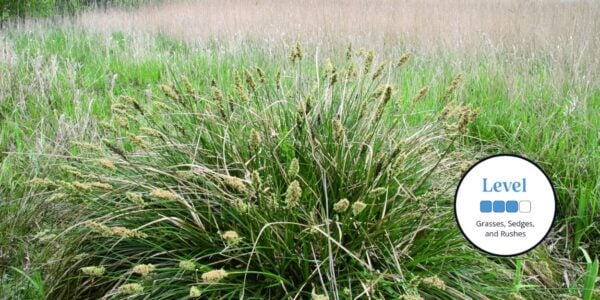
Fri 21, June 2024 18:30 - Mon 24, June 2024 16:00
MMU students - please email [email protected] to book your course place.
Sorry this course is out of stock
Progress Your Learning
This is a training course from the Field Studies Council, delivered by expert tutors with an approachable learning style. After attending this course, you may like to progress your learning with further relevant courses or branch out into other areas of natural history. The Field Studies Council offers both online and in person courses, so you can choose the learning style that suits you best.
The course gives you the opportunity to immerse yourself in a new subject and acquire novel skills. Our online portal gives you time to study at your own pace and fit the lessons around your own schedule.
If you have any questions about our online courses please check our Frequently Asked Questions
Please email [email protected] if you have any questions.
Group Bookings Made Easy
If you have a group of 10 or more individuals wanting to complete one of our courses, our team are available to discuss your options – from discounts to private team courses. Find out more!
You can rest assured that the absolute best content from an expert in environmental education will be at your fingertips. In choosing a Field Studies Council course, you will be joining thousands of people who learn with us each year.

